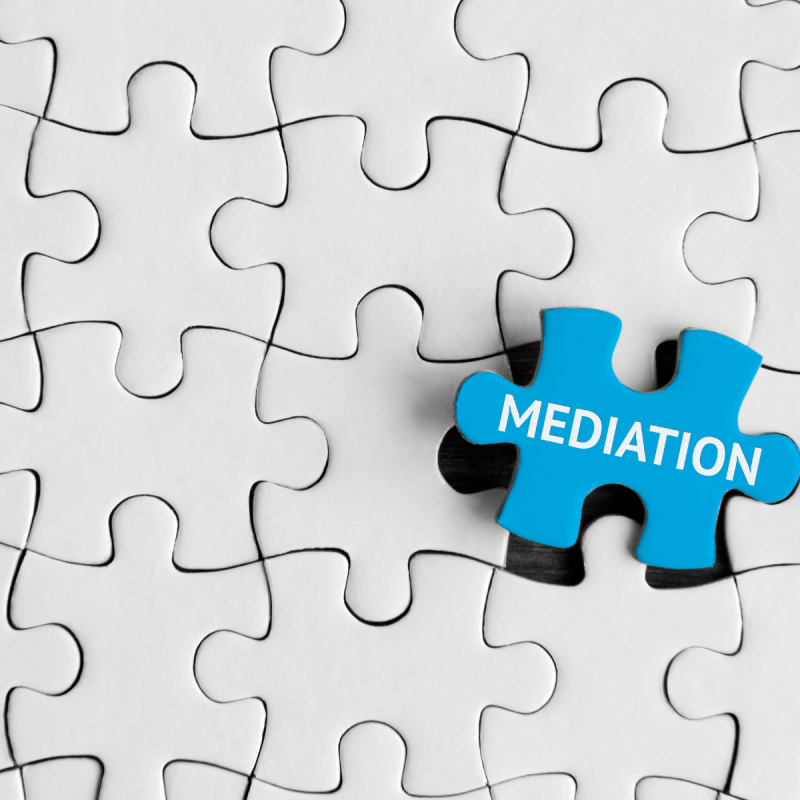“I predict that compulsory mediation will spread to a place near you before very long”.
Those were the words of Lady Justice Asplin talking to a room full of contentious trusts and probate lawyers in Venice in March 2023. I was due to speak on the topic a few hours later. I swiftly took out my notebook and scribbled out my words “aimed at the lower value claims.”
My sense from talking to people is that there is little enthusiasm for compulsory mediation, even amongst many mediators. Indeed, most people don’t think it will happen, so they are not paying much attention. I have a feeling that the wheels are in motion and gaining momentum. The Churchill v Merthyr Tydfil County Borough Councilis being heard on 8 November 2023. The outcome of that case will be significant.
I predict a riot!
So what are my thoughts on this as a mediator? On the one hand, I have concerns about people involved in a dispute being forced to do anything. Human beings favour choice and like to be in control of their decision making. Mediation works best when everyone has chosen to be there and there is a collective desire to settle. Selfishly, the idea of an increase in reluctant, or worse, hostile mediation participants fills me with dread and I predict tougher mediations, more people not mediating in good faith and lower settlement rates. On the other hand, I can see huge benefits of mediation becoming an integrated part of the justice system. For families involved in inheritance disputes, I can see that having to mediate would save a lot of families from themselves. For the justice system generally, I can also see the benefits of freeing up the clogged up system so that Judges can spend more time on the cases that really do need to go to trial.
I recently had an experience which softened my views on compulsory mediation. I mediated a case where one angry participant told me in writing before the mediation that he saw the mediation as a tick-box exercise that he wanted to just get through so he could get on with administering the wishes of his mother in accordance with her will. He had apparently already refused mediation several times and he reinforced his sentiments to me rather vociferously in the pre-mediation call. He showed no signs of understanding what mediation was, nor a willingness to compromise at any level. I felt concerned, but one thing I have learned in my four years of mediating is that regardless of how difficult settlement appears, you must always stay positive and trust the process. In a mediation, you never know what is going to happen next and the darkest hour is often before dawn. That mediation settled, and that gentleman shared quite a bit of his mother’s estate with his brother. He even cracked a smile at the end of the day. Perhaps he was “infected with the conciliatory spirit” that Mr Justice Lightman once referred to when speaking about mediation. I will never really know, but it did make me wonder – if mediation were made compulsory, how many cases involving reluctant participants might settle that would have gone on for many months or years or even gone to trial. The likely cost saving for many individuals is obvious.
Timing is everything
If an element of compulsion is eventually coming to the Business and Property Courts, what’s it going to look like? When would parties have to mediate during the litigation journey? The answer to this is not clear yet, but the concept of “automatic referral” is gathering momentum. That would involve all issued cases being automatically referred to mediation post issue. Logic would suggest that the best time would be after the close of statements of case, perhaps after the first directions hearing. For many cases, mediating prior to formal disclosure will present a problem. I personally don’t think it’s sensible to have a one-size fits all approach where every case is mediated at the same time. In my view there should be early disclosure of the key documents and the first directions hearing should be used to consider, among other things, when is the best time to mediate the case. Early mediations can be problematic – there often needs to be a certain amount of despair and exasperation in the air!
The Churchill v Merthyr Tydfil County Borough Councilcould pave the way for Halsey being overturned and the Courts being able to order parties to mediate. I hope the result will enable Judges to have discretion to decide which cases might be suitable for mediation and when is the right time to mediate.
Another reason I do not favour a one-size fits all approach, is that there are clearly cases that are simply not suitable for mediation. Forcing those cases to go to mediation, could result in time and costs being wasted. Perhaps the answer is having the ability to apply to Court to “opt-out” by giving good reasons as to why mediation does not have a likely prospect of success?
Language matters
The language we use around this topic is important. The Ministry of Justice Report published in July 2021 refers to, “cementing mediation as an essential part of the modern justice system” and “embedding mediation as an integral step in the court process”. I heard one mediator refer to mediation becoming “another stop on the train in the litigation process”. If that is the case, why do we need to use the words “compulsory” or “mandatory”? We don’t refer to mandatory disclosure or witness statements – they are just one of the train stops. My vision would be that mediation just slots into the litigation timetable with flexibility as to timing. Mediation doesn’t need to be regarded as “alternative” anymore. Making mediation culturally normal would help to remove the feeling some people have that agreeing to mediate is a sign of weakness. The terms “automatic” or “integrated” mediation seem to be better than words that will automatically trigger people who do not like being forced to do anything.
Evolution of the process for private client disputes
If private client disputes are always going to be mediated, then I think there needs to be some evolution and innovation. I’m increasingly of the view that the traditional mediation process does not suit contentious trust and probate cases very well. If someone were to design a process specifically for these types of cases – would it look like it does now? Personally, I would make the following changes:
- I would drop the term “Position Statements”, which tend to encourage parties to draft aggressive statements, which too often just set out why that party thinks they are going to win and the law at length or alternatively something that is little more than a case summary. I prefer the term “Mediation Statement”. For my further thoughts on this, please see my blog: https://www.doveintheroom.com/how-to-write-an-impeccable-mediation-statement/
- Ever since I started mediating, I have included a pre-mediation call with each set of lawyers and clients in my process. I allow 30 minutes with each party’s lawyers and up to an hour with the clients themselves. In my view, this is invaluable for building trust and helping the clients to calm their nerves ahead of the mediation day itself. It saves time and consequently leads to shorter mediations.
- Joint sessions are rare in contentious trust and probate cases. I would normalise not having a joint session at the beginning of a mediation to avoid the anxiety that the prospect of this causes for some people. A joint session could still be an option if appropriate, but it is probably more beneficial at some point during the mediation rather than at the start.
A creative idea: FDR-MED?
People mostly turn up to mediation posturing and overstating the strength of their case. It’s normal and part of the game people play, but often it can make mediations longer and more difficult than they need to be. I have a vision for more effective mediations, which would follow some judicial input, perhaps at a Financial Dispute Resolution or Early Neutral Evaluation hearing. I would very much like the opportunity to mediate a case shortly after such a hearing, where both parties have had a reality check.
Concluding Thoughts
The Chinese proverb: “Be not afraid of growing slowly; be afraid only of standing still” sums up why we need to embrace change and allow innovation. Whilst the informal concept of dispute resolution started in ancient civilisation, the formal practice of mediation is a relatively young concept, having only arrived in the UK in the 1990’s. I hope that in another 30 years, (when I intend to still be mediating!) the process will have evolved for the better, enabling more people to find their own solutions to their disputes without relying on the Courts to impose an outcome.

